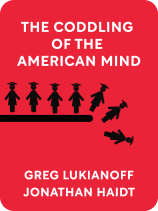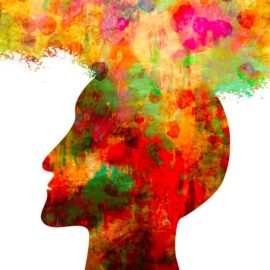

This article is an excerpt from the Shortform book guide to "The Coddling of the American Mind" by Greg Lukianoff and Jonathan Haidt. Shortform has the world's best summaries and analyses of books you should be reading.
Like this article? Sign up for a free trial here .
Why have there been so many college riots in recent years? In what way is “violent” speech contributing to the problem?
In the book, The Coddling of the American Mind, Jonathan Haidt and Greg Lukianoff suspect that labeling speech as “violent” is giving college students the excuse to retaliate with physical violence. Two examples the authors use are the riots at the University of California at Berkeley and the Middlebury College in Vermont.
Keep reading to learn how labeling speech as violent may be contributing to college riots.
Speech as a Form of Violence
In a 2017 New York Times essay, Northeastern University professor Lisa Feldman Barrett made the argument that certain forms of speech ought to be considered a form of violence.
The logic of this argument is that inflammatory speech can cause emotional distress. Emotional distress, in turn, can have harmful effects on one’s physical health. Therefore, since some forms of speech can lead to physical harm, such speech ought to be considered the moral equivalent of physical violence.
But this is a deceptively simple formulation. By this logic, almost anything could be considered an act of violence, since anything is likely to be emotionally stressful to at least someone. Anything that causes stress would therefore be considered “violent.” A parent telling their kids to clean their room or to do their homework (either of which might trigger stress) would be violent if one carried the premise of Barrett’s argument to its logical conclusion.
Of course, emotional stress, even if it leads to some level of physical harm, is not the same as violence—and neither is the speech that might cause emotional distress.
College Riots
These ideas have been given real and often frightening expression on college campuses in recent years, resulting in college riots, mayhem, violence, and intimidation at universities from the University of California at Berkeley to Middlebury College in Vermont.
In February 2017, left-wing protesters at Berkeley assaulted people gathered to hear a talk by right-wing personality Milo Yiannopoulos (a self-described “troll” who admits to making inflammatory statements in order to provoke outraged responses from the left).
The protesters, many of them masked and claiming to be affiliated with the militant anti-fascist group Antifa, intimidated attendees and caused extensive damage to university property. Ultimately, Berkeley gave in to the protesters and canceled Yiannopoulos’s speaking event.
The next month, a similar outbreak of violence occurred at Middlebury College in Vermont. There, controversial right-wing author Charles Murray was scheduled to speak. Murray, in his 1994 book The Bell Curve, argued that social and economic inequality is the result of innate genetic differences that render blacks, Latinos, women and the poor intellectually inferior to white men. Students at Middlebury responded by rioting, destroying property, and even physically threatening Murray and members of the faculty.
Chillingly, these violent college riots were justified in the name of stopping violence, because the rioters believed that speech by these (admittedly controversial and deliberately provocative) right-wing speakers itself constituted an act of preemptive violence that denied students from historically marginalized groups “the right to exist.”
This kind of thinking is the essence of destructive common-enemy identity politics. It is inherently poisonous to free debate. If you believe your opponents in a debate are attempting to do violence to you or negate your very existence, then violence is the only possible response.

———End of Preview———
Like what you just read? Read the rest of the world's best book summary and analysis of Greg Lukianoff and Jonathan Haidt's "The Coddling of the American Mind" at Shortform .
Here's what you'll find in our full The Coddling of the American Mind summary :
- The "three Untruths" that have taken hold of young people
- The damage that "speech codes" cause on college campuses
- How colleges are increasingly seeing students as customers






